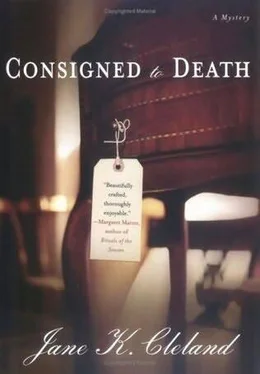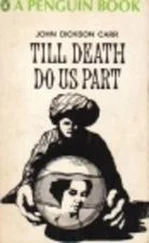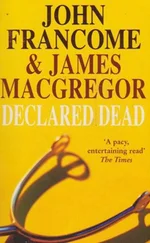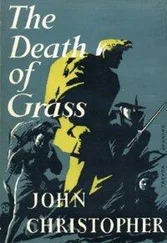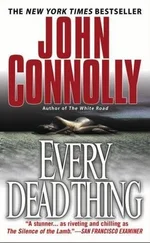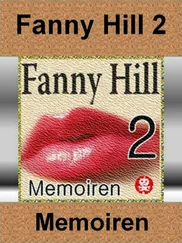“About what I said, that I’d like to interview you. I wanted to let you know that if you changed your mind, I’ll be at the paper tomorrow morning after nine.”
“What are you talking about?”
“You know,” he said, “the interview.”
“What interview?” I felt as if I’d wandered into a hall of mirrors. Nothing was as it appeared. Had I gone insane-agreeing to an interview with Wes Smith? It wasn’t possible.
“Yesterday. You asked that I call you.”
And with those words, I finally understood that Wes was being discreet. He knew I hadn’t agreed to an interview-he was being careful, which could only mean that he was assuming that my phone was tapped. Whether it was tapped or not, he was smart to presume that it was, and I was stupid not to have thought of it before.
“Ha, ha, Wes. I told you,” I said, playing along, “I won’t talk to you. Besides which, I have the auction tomorrow-and the tag sale.”
“When do they start?”
“I need to be there by nine.”
“Okay. I’ll be at the Portsmouth Diner at seven.”
“Is that the place by the Circle?” I asked, thinking that we weren’t doing a very good job of being circumspect, and that anyone listening to our conversation would know we were arranging to meet.
“Yeah, that’s the joint.”
“Well, I’ve told you that I won’t talk to you,” I repeated, wanting to be on the record, in case the call was, in fact, being taped, and Max ever needed to defend me against a charge of interfering with an official investigation.
“I understand,” he answered. “Just in case, write down my cell number.”
I did, told him good night, and hung up.
Wes sounded confident, even excited, and it was contagious. That must mean that he had answers he knew I’d be glad to hear. I couldn’t imagine what they were, but I allowed myself to feel optimistic.
I smiled as I climbed the stairs, and I was still smiling as I fell asleep.
Wes was leaning against an old dark blue Toyota in the parking lot of the Portsmouth Diner when I pulled in just before seven. It was thickly overcast and cold, and he wore a red-and-black checked woolen jacket buttoned to his chin.
I pulled up near the front in response to Wes’s signal. I lowered my window and he said, “Go ahead and park. I’ll drive.”
“Where are we going?” I asked.
“You’ll see.”
“Wait a sec!” I called as he walked away. From the back, he appeared rounder than he had from the front. If he wasn’t careful, he’d be fat before he was thirty. “What about breakfast?”
“Later.”
I pulled into a space and hurried to his car. Looking in, I spotted crumpled-up coffee cups, candy wrappers, and fast-food bags covering the floor in back, stacks of papers haphazardly placed on the backseat, and a portable CD player wedged between a scuffed, old briefcase and a battered CD storage case. It was a pit.
Reaching across from the driver’s side, Wes swept crumbs from the front seat onto the floor. Gingerly, I sat down and latched my seat belt, wrinkling my nose with distaste. The metal was sticky.
Wes revved his motor and accelerated as if he were on a race track, then, when he came up on a slower moving vehicle or red light, pounded the brakes to stop. And he did it over and over again. It was nauseating. Reaching Portsmouth Circle, a rotary that served as the unofficial entrance to the city from the interstate, felt like a major accomplishment. Wes swung south on 1-95, and at the next exit, reeled east toward the ocean.
“If we’re going far,” I said, turning to look at him, “let me drive.”
“What’s the matter?”
“You drive like a maniac.”
Amazement showed on his face. “What are you talking about? I’m a good driver.”
“Oh, God. Slow down, will you? You’re not a good driver-you’re a jerky driver. If you don’t stop it, I’m going to get sick.”
“Okay, okay.”
He slowed to a reasonable speed, but his driving stayed staccato. I readjusted my grip on the overhead handle, and hung on.
Fifteen minutes later he slammed to a stop at the edge of the dunes in Hampton Beach. The sky was overcast and thick. It looked like rain. I held on to the dashboard for a moment, relieved that we were uninjured and no longer moving.
“Wow. Whatever’s going on, I sure as shooting hope it’s worth what I just went through on that ride.”
“So,” Wes said with faux concern, “are you always cranky before breakfast or only when you’re with a new man?”
“Oh, God, save me from fourteen-year-old race-car drivers.”
“I’m twenty-four,” he protested.
“Well, you look and drive like you’re fourteen.”
“You’re getting old. The older you are, the younger other people look to you.”
“Did you bring me to the beach so you could insult me?”
“No,” he said, opening his door and stepping out. “That’s just an added benefit. Come on, don’t get me started. Follow me.” He handed me the portable CD player he’d extracted from the backseat. “Take this.”
“What in the world?…” I began, but he disappeared behind the car and opened the trunk. He pulled out a scraggly woolen blanket and a scuffed red-and-white Playmate cooler and locked the car.
“Ready?” he asked.
“For what?”
“Come on.” He scrambled up a dune, pushing through tall grass, and with a sigh and a shrug, I followed.
Wes headed toward the ocean, and looked around. He selected a fairly level spot about ten feet from the surf. Snapping the blanket to lay it flat, he smoothed it out and sat down, gesturing that I should join him. The wind off the blue-black ocean was bitter, and I shivered as I sat down, lifting the collar of my pea coat and rubbing my hands together.
As I got settled, I looked around. Wind-whipped whitecaps rippled across the ocean surface. The beach was mostly deserted. I saw someone sitting about a hundred yards to the north, huddled in a lawn chair staring at the ocean, and far to the south, a man was throwing driftwood to a golden retriever. Each time the man tossed the branch, the dog dashed away and retrieved it, trotting with a jaunty swagger, to drop it at his master’s feet.
Wes turned on the CD player, and Frank Sinatra began to sing “Fly Me to the Moon.” “I have no reason to think you’re wired, and I damn well know I’m not,” he whispered, leaning toward me. “But I’m going to be quoting a police source, so I can’t take any chances. With the ocean sounds and the CD, if we whisper, we should be fine.”
“Are you serious? You think I might be wearing a wire? You’ve been watching too many movies.” I noted that even as I expressed incredulity, I whispered.
Wes leaned back, resting his weight on the palms of his hands. “You might be right. So what? Indulge me, okay?”
I shrugged. “Sure.”
He pulled a thermos of coffee, two plastic mugs, and a box of doughnuts out of the Playmate. I couldn’t remember the last time I’d eaten a doughnut. I took a honey-glazed and nibbled. It didn’t taste like food. It tasted like dessert. Wes took an oversized bite of a chocolate-glazed doughnut. He used the back of his hand to wipe away smudged chocolate from his cheek.
“What do you want to hear about first?” he asked. “Phone, prints, or background?”
“It doesn’t matter. Phone, I guess. Were you able to learn who called Mr. Grant?”
Wes nodded. “Basically, no one.”
“What do you mean, ‘basically’?”
“His daughter, a widow named Dana Cabot who lives in Boston, called several times. So did his next-door neighbor and his lawyer, Epps. Also, there were two business calls.” He shrugged. “Other than that, no one but you and another dealer, Barney Troudeaux, called him during the last month.”
Читать дальше
